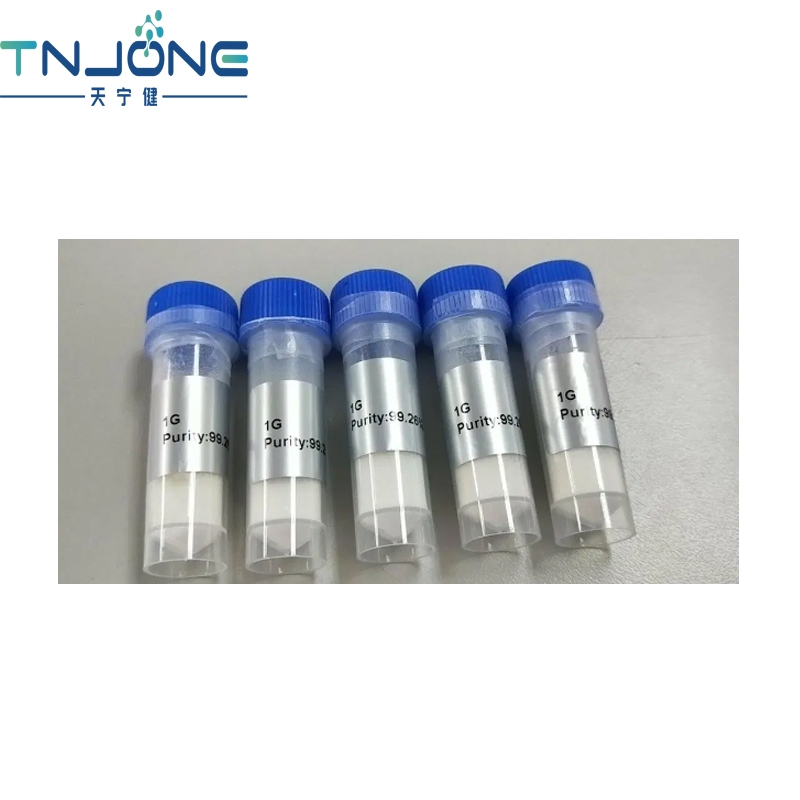-
Categories
-
Pharmaceutical Intermediates
-
Active Pharmaceutical Ingredients
-
Food Additives
- Industrial Coatings
- Agrochemicals
- Dyes and Pigments
- Surfactant
- Flavors and Fragrances
- Chemical Reagents
- Catalyst and Auxiliary
- Natural Products
- Inorganic Chemistry
-
Organic Chemistry
-
Biochemical Engineering
- Analytical Chemistry
-
Cosmetic Ingredient
- Water Treatment Chemical
-
Pharmaceutical Intermediates
Promotion
ECHEMI Mall
Wholesale
Weekly Price
Exhibition
News
-
Trade Service
Nov 23, 2020 // -- Cancer neoantigens, a cancer neoantigens that target tumor-specific soy cell mutations, may be a very attractive and challenging strategy for specifically removing tumor cells through cell immunotherapy, a paper published in the international journal Cell In a review article entitled "Strength in Numbers: Identifying NeoantiGen Targets for Cancer Immunotherapy", scientists from Lyell Immunopharma describe a new approach that optimizes bio-informational channels and uses a new generation of sequencing data to sensitively and accurately predict new immunogenics.
tumors are caused in part by mutations in the sombo cells of DNA, which mediate the proliferation of cells and give rise to survival advantages, which can lead to the emergence of mutant peptides when the expression coding region of DNA is mutated, i.e. a small portion of the new epitopes of the neoepitopes can induce the body's immune response by being specifically identified by T-cells.
Immune-identified mutant peptides (new antigens) may mediate the clinical benefits of patients treated with immunotherapy (immune checkpoint blockers or tumor-immersed lymphocyte transfer therapy (TILs), and in principle, new antigens are an ideal target for the development of cancer immunotherapy, which can be specifically expressed in tumors, thus promoting the immune system to clearly identify normal cells and tumor cells, and limiting the toxic effects driven by immune destruction of healthy tissues.
photo source: Rigel J. Kishton, et al. Cell (2020) doi:10.1016/j.cell.2020.10.011 New antigens are considered foreign by the immune system, so they are more likely to cause a strong tumor-targeted immune response than autoantigens, and consistent with T Cell therapy can induce lasting responses in the body of patients with advanced cancer; however, however, it remains a challenge for researchers and clinicians to accurately and sensitively identify new antigens that can target action from potentially unrelated new antigens; in this study, researchers worked together to optimize bioinficial tools to better identify new antigens for tumors.
The typical strategy for identifying new antigens in tumors can use a new generation of sequencing techniques to identify the expressed mutation alleloloygens, and tumors and matching normal tissues also undergo whole exon group sequencing to identify tumor-specific mutations, while researchers can also perform tumor-specific mutations on tumor tissue. RNA sequencing determines the level of expression of the identified mutation, and the predictive algorithm then stratifies the mutation based on the likelihood of human white blood cell antigen (HLAs) in a single patient and determines the body's immunogenicity by using matching patient TILs or exosome blood cells.
The process is labor- and time-intensive, from initial surgical excision or tumor biopsies to the determination of assumed new tumor antigens, and most researchers working in the field can use special biometrics to identify new antigens, which can lead to a lack of standardized common methods;
Overall, the alliance strategy articulated by the researchers could allow more scientists to turn their attention to sharing methods that define new antigen predictions, and in this review, the researchers clearly define the typical characteristics of immunogenic peptides and show opportunities to improve bioinficional methods to help predict which tumor mutations are more likely to be new antigens;
Recent research suggests that most of the effective new antigens in refractic endosthroid tumors are presented by Class II HLA, and that the characteristics of these new antigens that guide immunogenicity may yet be further determined; By revealing peptide characteristics that regulate the body's immunogenicity, efforts to better accelerate the use of T-cell products and vaccines to therapeutically target new antigens may hopefully help scientists attack tumor cells in a more specific and powerful way by using a new generation of sequencing data to overcome bottlenecks that accurately and quickly predict new tumor antigens.
() References: Rigel J. Kishton, Rachel C. Lynn, Nicholas P. Restifo. Strength in Numbers: Identifying Neoantigen Targets for Cancer Immunotherapy, Cell (2020) doi:10.1016/j.cell.2020.10.011







